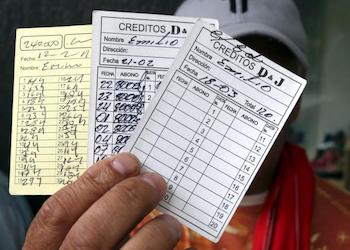A Colombian gang leader has been accused of operating a “gota a gota” loansharking network in Chile — evidence that this extortion tactic continues to spread across the region.
Julián Isaza Puerta, alias “Chuky,” was arrested on August 12 at Bogotá’s international airport, El Colombiano reported. Authorities say he is a leader within Medellin’s La Terraza gang. The gang has ties to the Oficina de Envigado, a federation of criminal groups that control the city’s underworld.
Isaza Puerta was charged with running a “gota a gota,” or “drop by drop,” loan scheme — named after the way in which victims are slowly bled of funds.
SEE ALSO: Chile Profile and News
The “gota a gota” loan tactic consists of lending small sums at high interest rates to people and business owners who have trouble obtaining credit. The cash often comes from illegal activities, including drug trafficking.
Daily interest rates on these loans are as high 20 percent, and when people can’t pay, they face threats and and attacks.
Authorities have found it difficult to combat the practice of “gota a gota,” because victims are often afraid to speak out.
InSight Crime Analysis
“Gota a gota” loansharking continues to be one of Colombia’s most successful criminal exports, with this type of low-level extortion being a source of revenue for gangs and mafias across Latin America.
Chile has turned into a hotspot for “gota a gota,” because a large number of small business owners are unable to secure credit from official banks.
SEE ALSO: Colombian Loan Sharks Expanding Internationally
In 2018, about a dozen Colombian nationals were convicted of operating a loansharking network in Chile. The group provided 500 illegal loans that ranged from $150 to $5,000. In total, nearly $115,000 from the scheme was sent back to Colombia and Brazil, according to La Tercera.
“Gota a gota” operators have also set up shop in Peru, Mexico and elsewhere. In Mexico, for instance, eight local crime groups protect more than 1,500 Colombian nationals who operate illegal loan networks in the capital and in more than 20 of the 31 states of the country.
Colombian mafias such as La Terraza, the Oficina de Envigado and Los Urabeños are believed to be behind some of the international expansion, according to El Tiempo.
In Colombia, gangs even now use specialized apps to remind their victims it is time to pay up.

